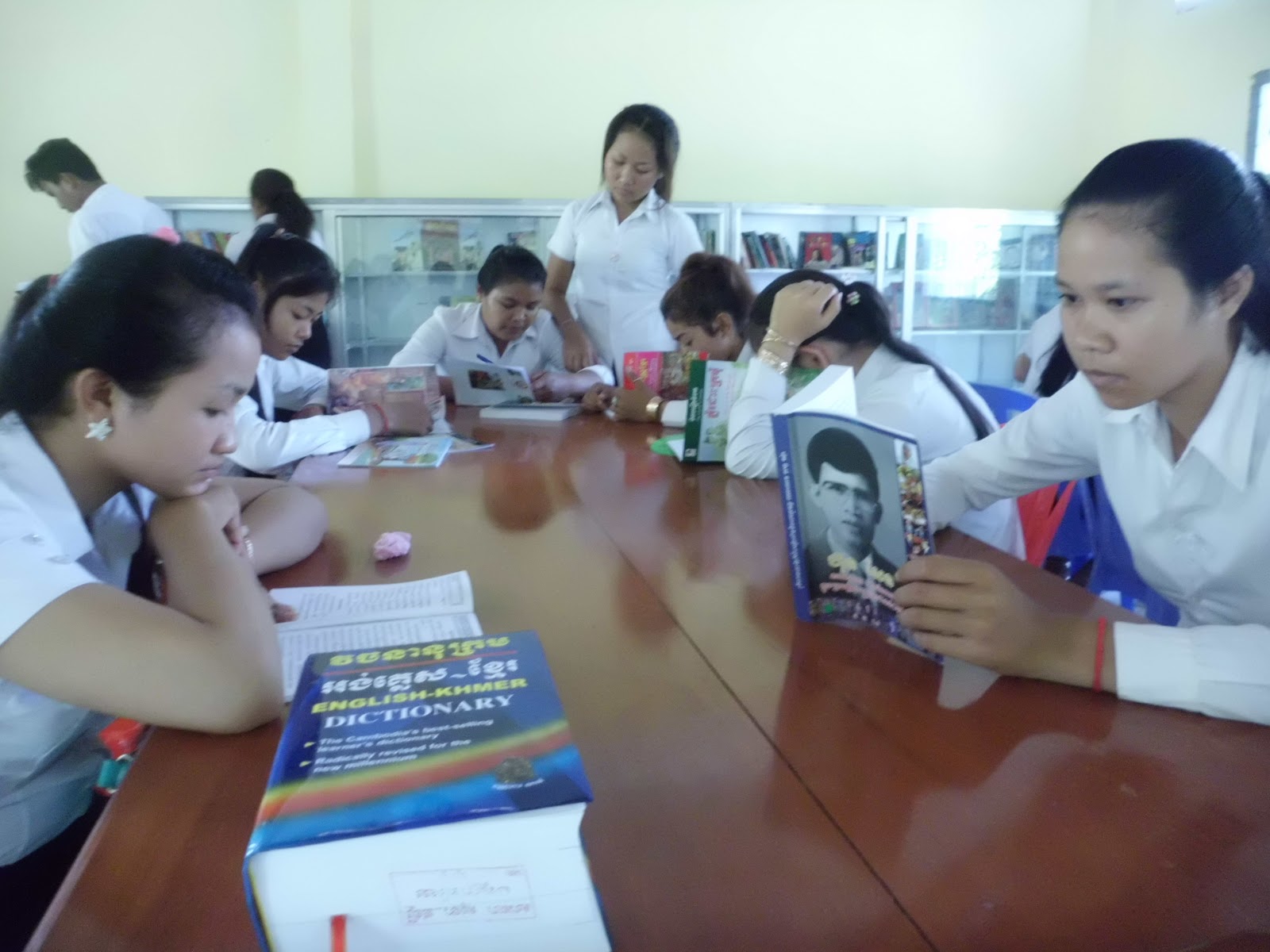My school hosted two environmental workshops (one for grades 11 and 12, the other for grades 7-10) which were taught by 24 American high school students and the 5 Cambodian students from Kampong Speu province who recently studied abroad in the US. Sarann, a Cambodian English teacher who accompanied the 5 Cambodian students on their study abroad in D.C. and Hawaii was my counterpart and co-coordinator.
Over 200 Sokha Phally High School students participated in sessions on litter/waste management, the 3R's, and the dangers of burning plastic. For many students, this was the first time they'd heard about these topics. The 24 Americans and 6 Cambodians co-taught the highly engaging lessons which included Khmer rapping, a scavenger hunt, and popping balloons by sitting on them. At the end of the day, there was a raffle for prizes like sports equipment, Khmer-English dictionaries, backpacks, and the grand prize - bicycles. All of the students were excited and engaged during the lessons, and I was particularly impressed with how well the American and Cambodian leaders worked together to teach their classes. The smiles in the pictures below are proof of just how much fun learning can be!
After the lessons, students lined up in groups to answer content review questions. This is one of my favorite students who I nicknamed "Frida" when she studied in my Spanish Club.
Cambodian and American students co-taught each lesson. Here they're teaching vocabulary related to burning like "put out a fire."
In this lesson, students learned about the 3R's. Panha is giving an example of waste that can be recycled.
After a scavenger hunt, teams divided their items into "compost," "recyclables," and "other" bins.
These co-teachers engaged their classes by allowing students to sit on the top of the desks - a radical idea! (The female teacher is Raksmey, the student from my school who studied in the US in April.)
Students wait with anticipation for the raffle drawing at the end of the workshop. Grades 11 and 12 studied in the morning.
Namji, the coordinator of the 24 American students, hands out prizes.
Soccer ball or volleyball -- tough choice!
Namji announces the two grand prize bicycles as students concentrate on their lucky numbers.
Co-coordinator Sarann and all the students applaud the winner of the second bicycle.
Sarann and the 5 Cambodian students who studied in America and co-taught the workshop pose with the two winners of the bicycles.
These grade 9 participants were excited to share the knowledge they'd gained.
Afternoon participants (grades 7 - 10) listen closely to the review questions.
Look at all those smart girls!
She was answering, "How do you spell 'reduce?'"
Sokha Phally High School's director draws for the grand prizes.
And the winners are...
These girls!
---------------------------------------------------------------------------------
Special thanks go to my counterpart, Sarann, and the Southeast Asia Youth Leadership Program participants for organizing the event, Namji Steinemann of the East-West Center and her team for coordinating with us and ensuring that the event was fun and engaging, Sokha Phally High School for hosting the event and rescheduling national testing to accommodate our proposed workshop date, LICADHO for arranging a human rights panel on land-grab issues for the American students, and Karuna Café for providing our lunch and dinner.





































